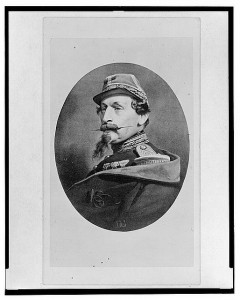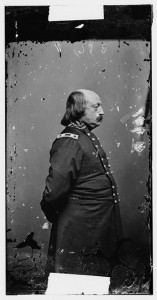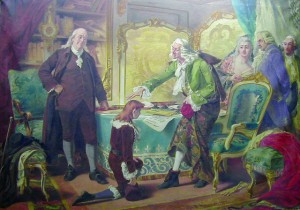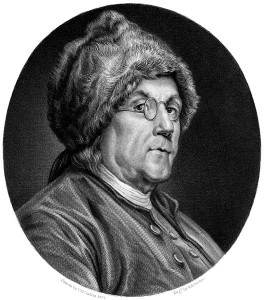Richmond Rhetoric: don’t have false confidence in foreign intervention
Recently The Civil War 150th Blog posted that in October 1862 France’s Napoleon III proposed that European powers intervene in the Civil War with diplomacy – getting both North and South to agree to an armistice and mediation. Here a Richmond editorial responds to the intervention rumors by saying, “Don’t count on it.” Its idea of “negotiations” seems to be to take a French and English fleet to New Orleans in order to string up Ben Butler. From the Richmond Daily Dispatch November 1, 1862:
The intervention rumors.
The rumors of an approaching proposition for an armistice and negotiations, alluded to by us yesterday, seem more plausible than any that have yet reached us. The New York Herald evidently thinks there is something in them, from the bitterness with which it assails the Express for publishing them. A strange state of society it must be in which a man cannot even state what he hears is going on in England without running the risk of being clapped into jail as a traitor. And this is the boasted Republic — this the “best Government the world ever saw” for not appreciating the merits of which the people of the Confederate States have been turned over to pillage and murder!
With regard to this subject the Enquirer does not seem to understand us. We are not of that class that entertain no hope. On the contrary, our hopes are as sanguine as it is possible for human hopes to be. There is a vast difference, however, between hope and false confidence. Our hope is in God and our own strength, and on these two exclusively. If foreign assistance come, we shall be as happy as the Enquirer to see it; but we wish not to be influenced in our action by any such expectation in the slightest degree. Our opinion is, that the Government should proceed precisely as though there were no other people on earth save ourselves and the Yankees. Let not the hope of foreign aid enter as an element into any calculation we may make, or any enterprise we may engage in. Let us act as Wellington said he meant to act after the shameful failure of the Spanish authorities to render him the proper assistance in the campaign of Talavers. “I will,” said he, “engage in no enterprise into which Spanish assistance enters as a portion of my means to prosecute it.” or words to that effect. And Wellington kept his resolution. If he thought himself able, with his English and Portuguese troops, to effect a particular object, he would undertake it; but if it was necessary to rely on the Spaniards as a portion of his force, he would abandon it. He kept them with him, but he expected nothing from them.
At the same time we are as much alive as anybody can be, to the immense advantage we should derive from the presence of an English and French fleet of Ironsides. Had we possessed such a fleet last summer, we could have captured McClellan and his thieves at Berkeley. Had we such an one this winter, we could take Butler and string him upon the spot he hung Mumford. We could destroy the Yankee fleet at Charleston and Mobile, and take all the scoundrels they are preparing to land there. It would, indeed, be of inestimable advantage to us. But as we have it not, let us not shape our course as though we had it. When in forming his combinations, Napoleon had not heard from a particular corps, he always acted as though it did not exist. Let us copy the example.
It looks like Voltaire blessed Franklin’s grandson in 1778.
_______________________________________




